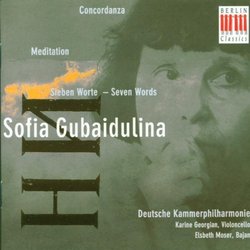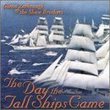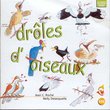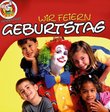| All Artists: Sofia Gubaidulina, Soloists of the Deutsche Kammerphilharmonie Title: Sofia Gubaidulina: Concordanza; Meditation; Seven Works Members Wishing: 1 Total Copies: 0 Label: Berlin Classics Original Release Date: 1/1/2008 Re-Release Date: 11/29/1994 Genres: New Age, Classical Styles: Meditation, Chamber Music, Symphonies Number of Discs: 1 SwapaCD Credits: 1 UPC: 782124111328 |
Search - Sofia Gubaidulina, Soloists of the Deutsche Kammerphilharmonie :: Sofia Gubaidulina: Concordanza; Meditation; Seven Works
 | Sofia Gubaidulina, Soloists of the Deutsche Kammerphilharmonie Sofia Gubaidulina: Concordanza; Meditation; Seven Works Genres: New Age, Classical
|
Larger Image |
CD DetailsSimilar CDs
|
CD ReviewsA less essential Gubaidulina disc Christopher Culver | 07/14/2006 (3 out of 5 stars) "This Berlin Classics disc, released in 1994, contains three chamber works by deeply spiritual Russian composer Sofia Gubaidulina, surely one of the saints of our time. The Deutsche Kammerphilharmonie performs, led in reheasals by Thomas Klug, with Karine Georgian on solo cello and Elsbeth Moser on solo bayan (a type of Russian accordian).
"Concordanza" (1971) is one of Gubaidulina's first overt avant-garde efforts. It uses such novel techniques as atonality, though in the typically Russian fashion as something worth avoiding, and whispers from the performers. The title refers to an attempt to make harmony--legato, tonality, the smooth flow of sound--out of discord, namely staccato from the winds, pizzicato, the murmuring of the players, and (a jab at Soviet aesthetic values?) march rhythms. The writing is clearly skilled, but the piece is for me, somewhat juvenile. Gubaidulina really came of age in the late 1970s. The power of Gubaidulina's mature period is evident in the following two pieces. "Meditation on the Bach Chorale 'Vor deinen Thron tret ich hiermit'" for harpsichord and string quartet (1993) is a tribute to the composer who, along with Webern, Gubaidulina venerates above all. The music consists of four sections which each work toward presenting a piece of Bach's chorale, with the full chorale finally heard in its entirety at the end. The piece, like much of later Gubaidulina, makes use of special rhythmic forms based on the Fibonacci sequence and its variants, and even if the listener can't consciously do the math, the profundity and elegance of the structure is immediately likeable. This piece hasn't been performed very much, and besides this recording I only know of one from the Lockenhaus festival on BIS, but I like it very much. "Seven Words" (1980), the "...of Christ on the Cross" left out of the title to avoid problems from Soviet music bureacrats, is one of Gubaidulina's most grippingly spiritual works, and has gained a wide audience leading to frequent performance and recording. Scored for bayan, cello, and strings, each of its seven movements consists of variations and mutations on the same several motives. There is a "crucifiction" motive where a pitch sounds on the violin with the simultaneous sounding of a glissando between a semitone above and below that pitch, clear cruciform symbolism. The music Schuetz used to set Christ's words "I Thirst" appears as another motive throughout the work. This is the third performance where Elsbeth Moser, the dedicatee, performs on bayan. The other two are on ECM and on Naxos. I must admit I find the pacing here rather idiosyncratic. The performance on the Naxos disc with the Maria Kliegel on cello and the Camerata Transsylvanica led by Gyorgy Selmeczi is much more elegant. Since "Concordanza" is immature, the "Meditation" is a somewhat minor work, and "Seven Words" has been better performed elsewhere, this disc isn't for the casual fan of Gubaidulina's work. However, eventually making one's acquaintance with the "Meditation" is well worth it." |

 Track Listings (9) - Disc #1
Track Listings (9) - Disc #1



